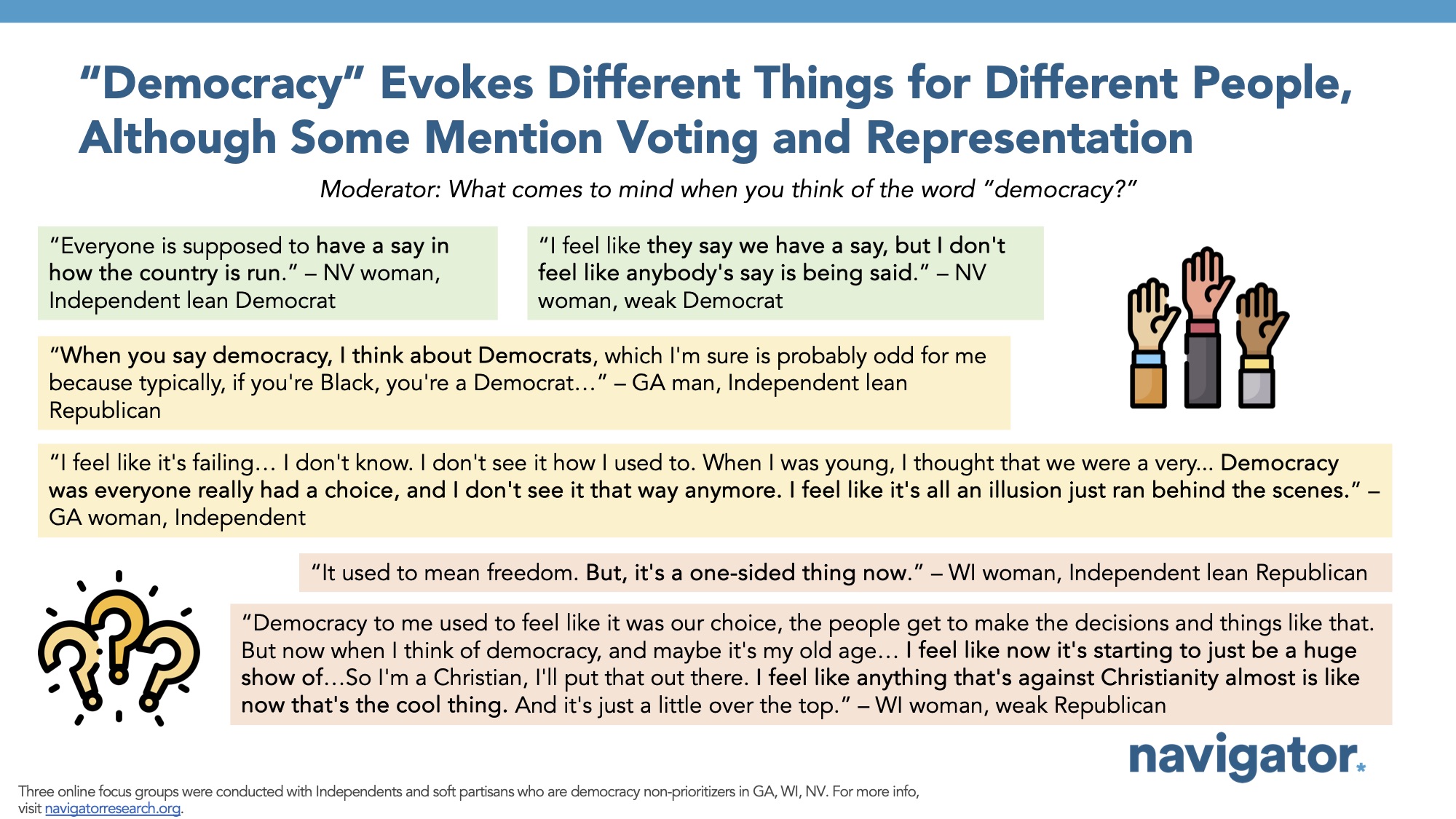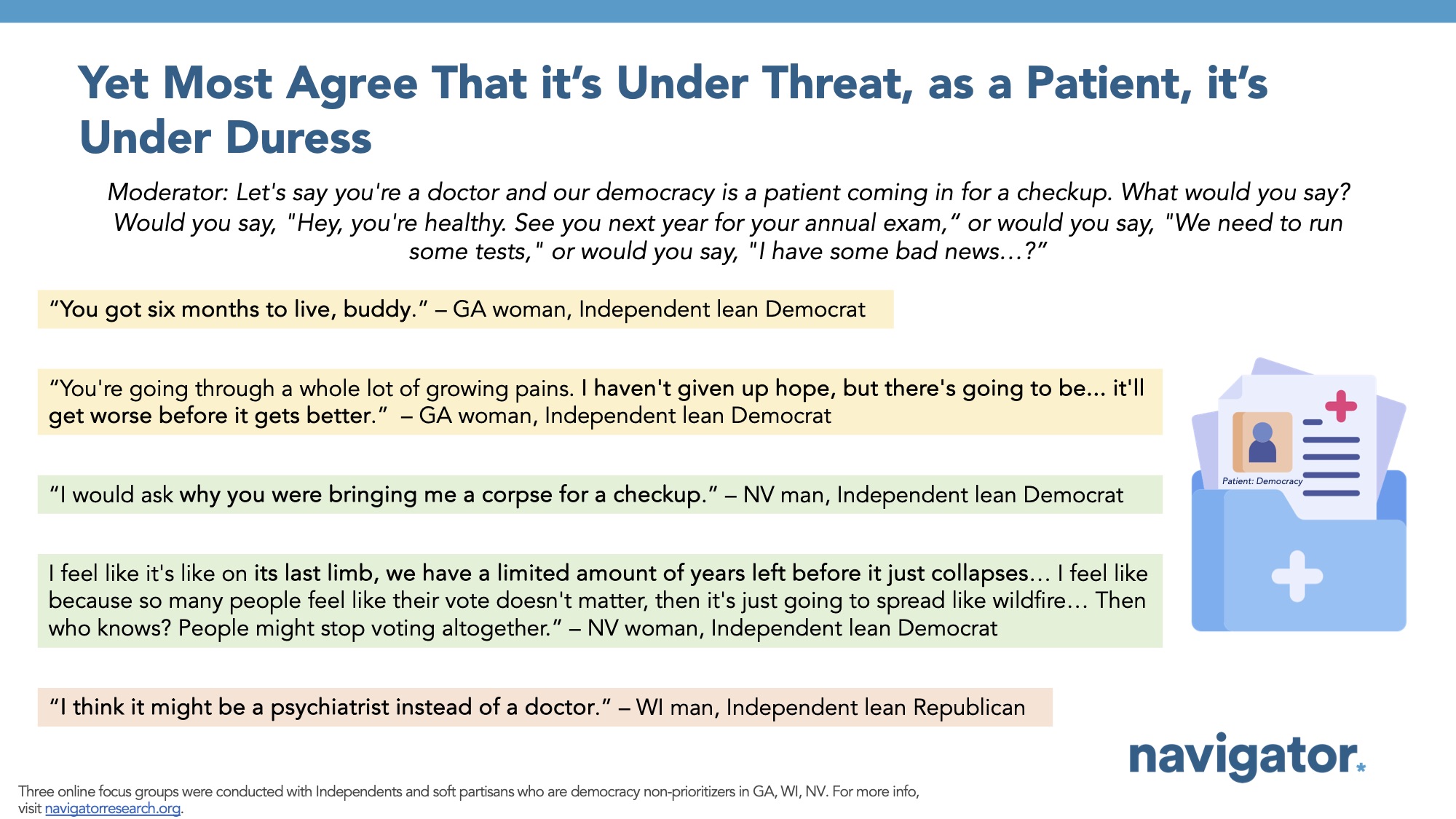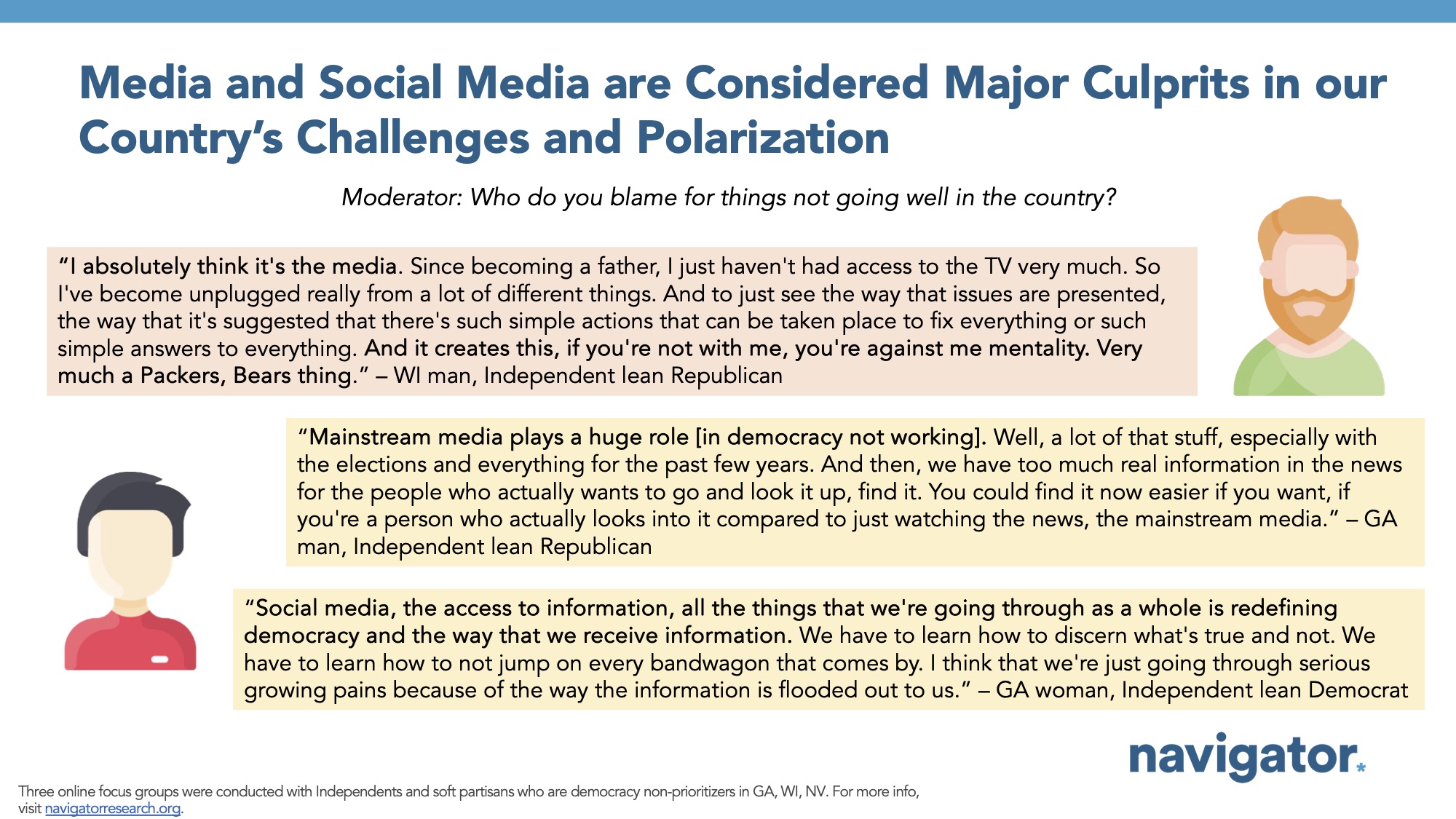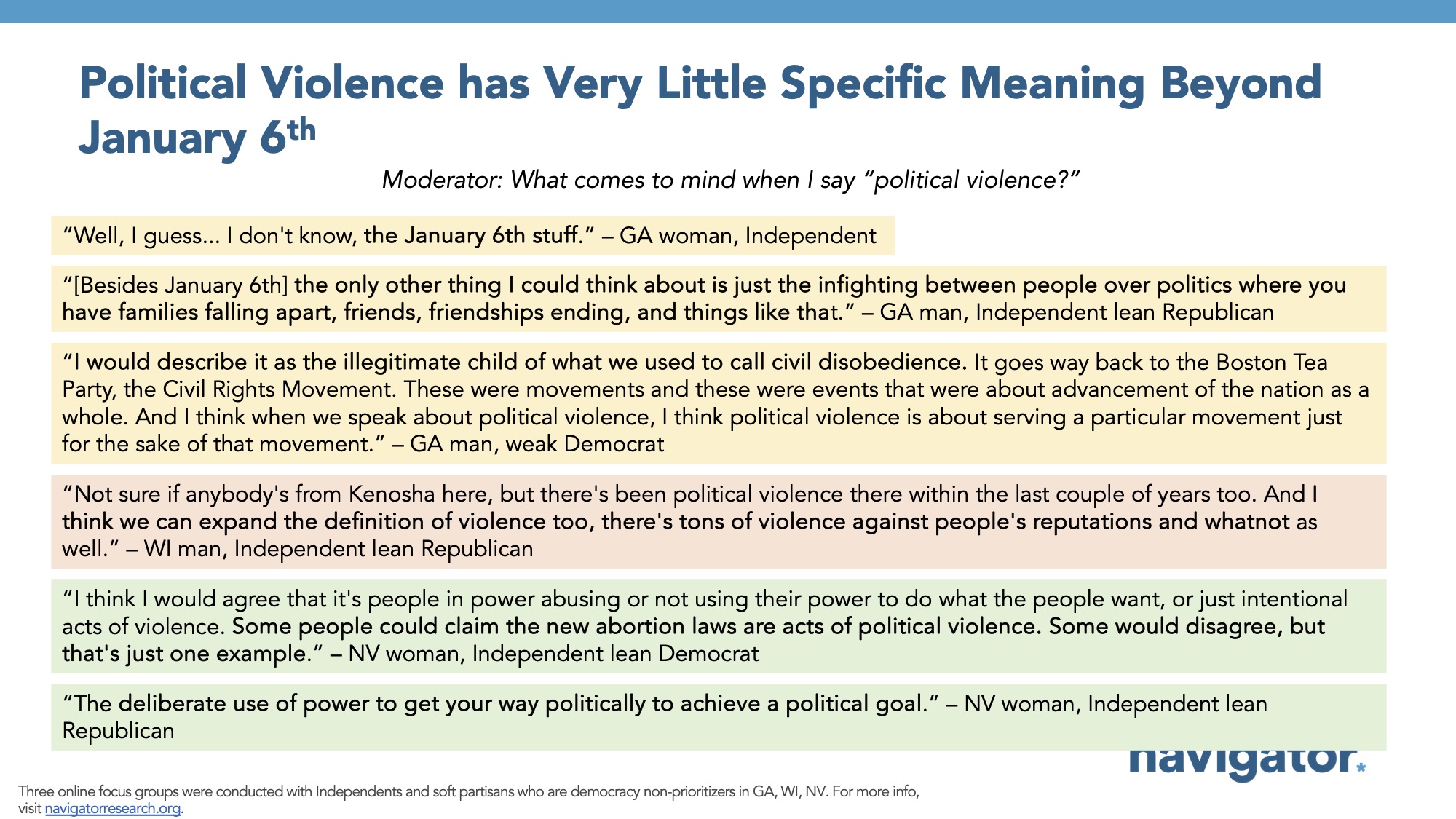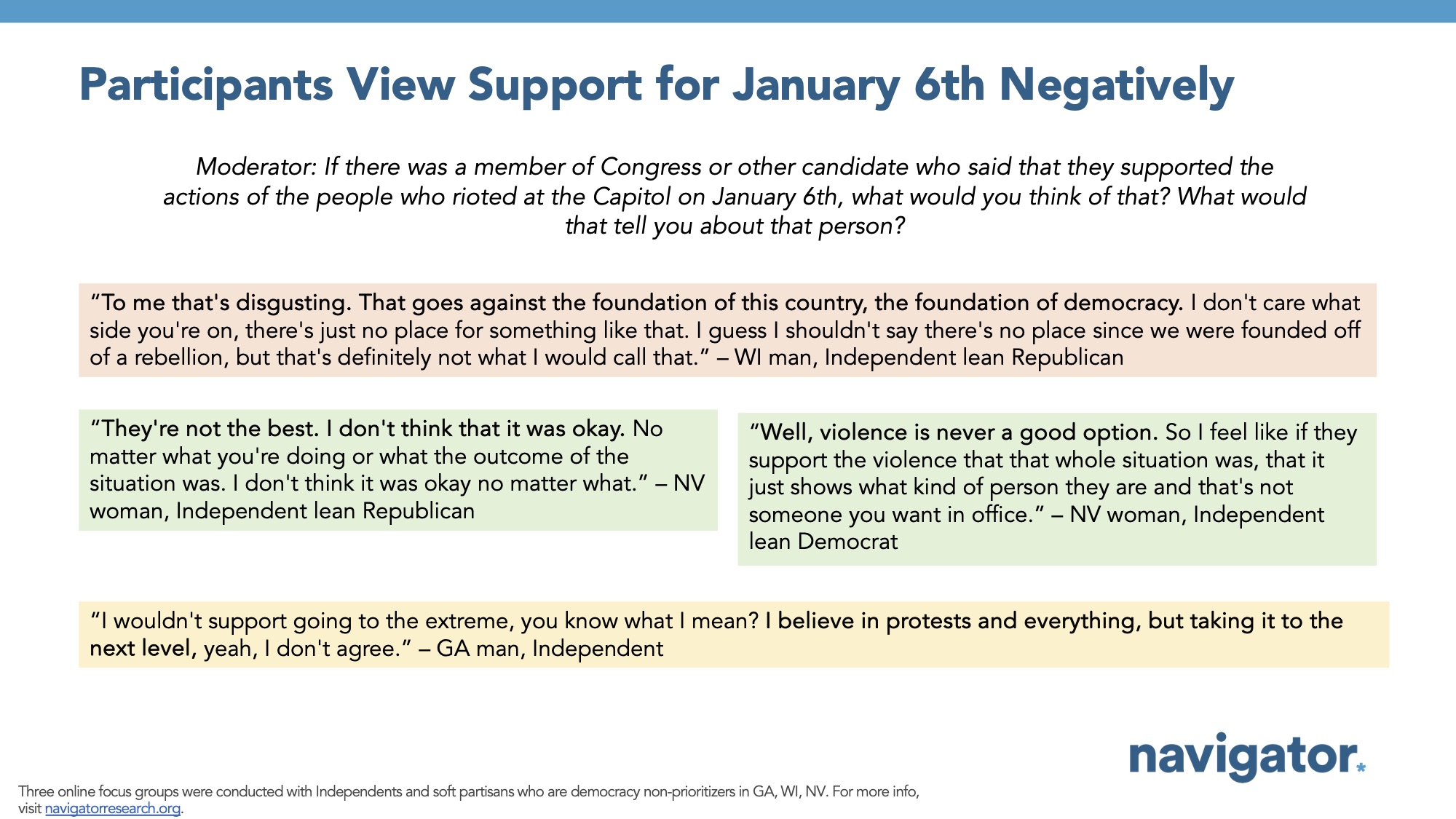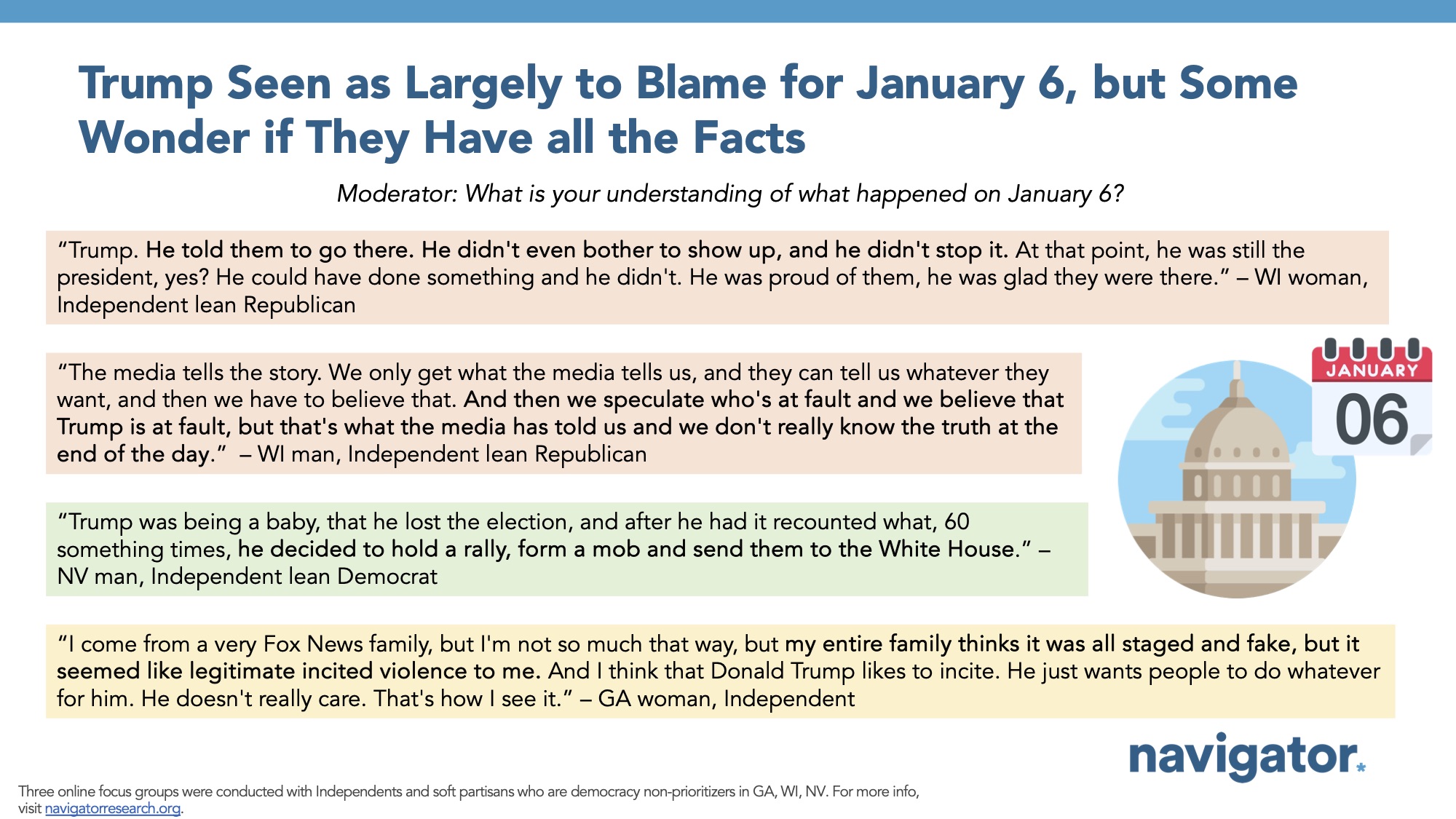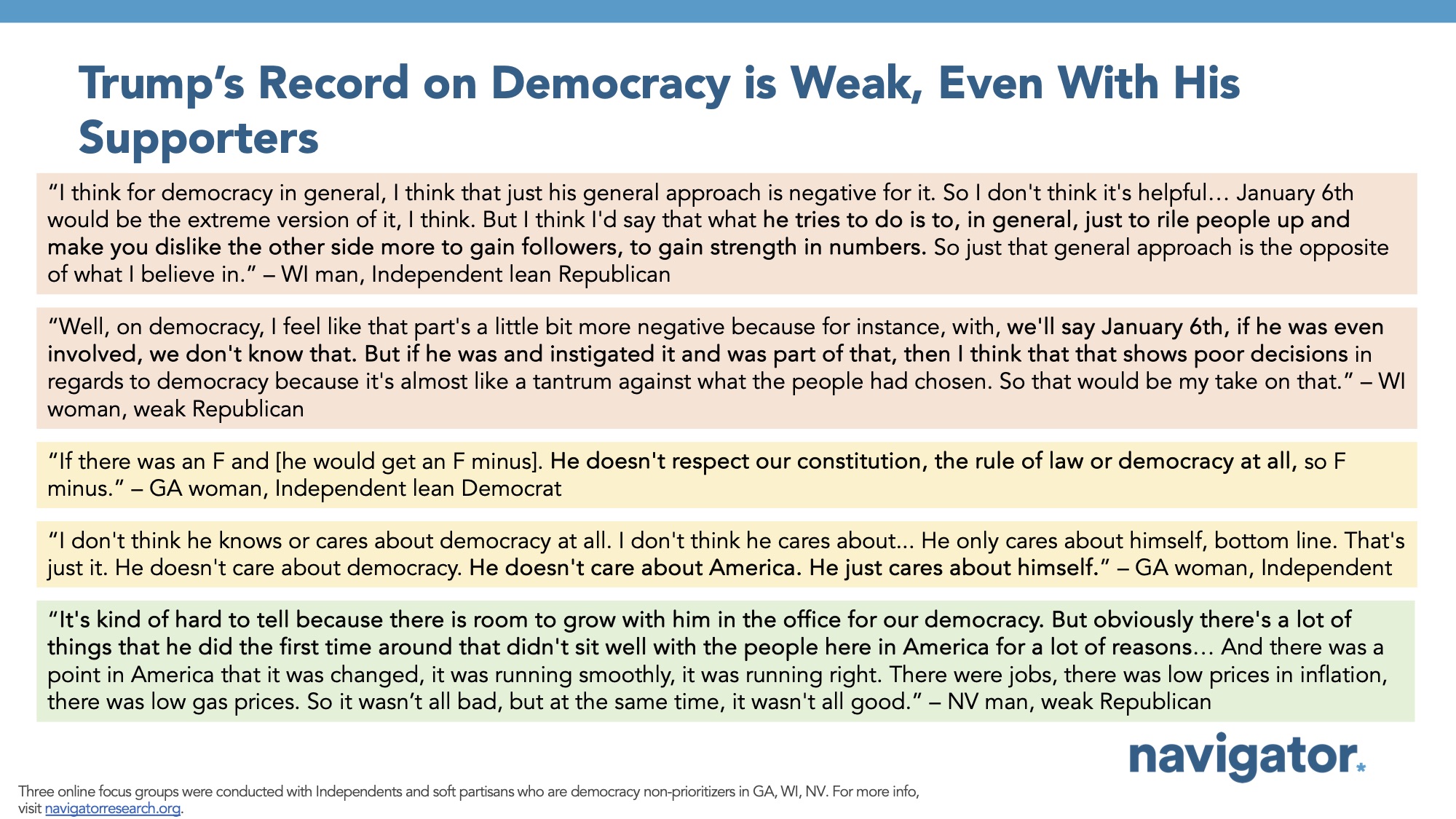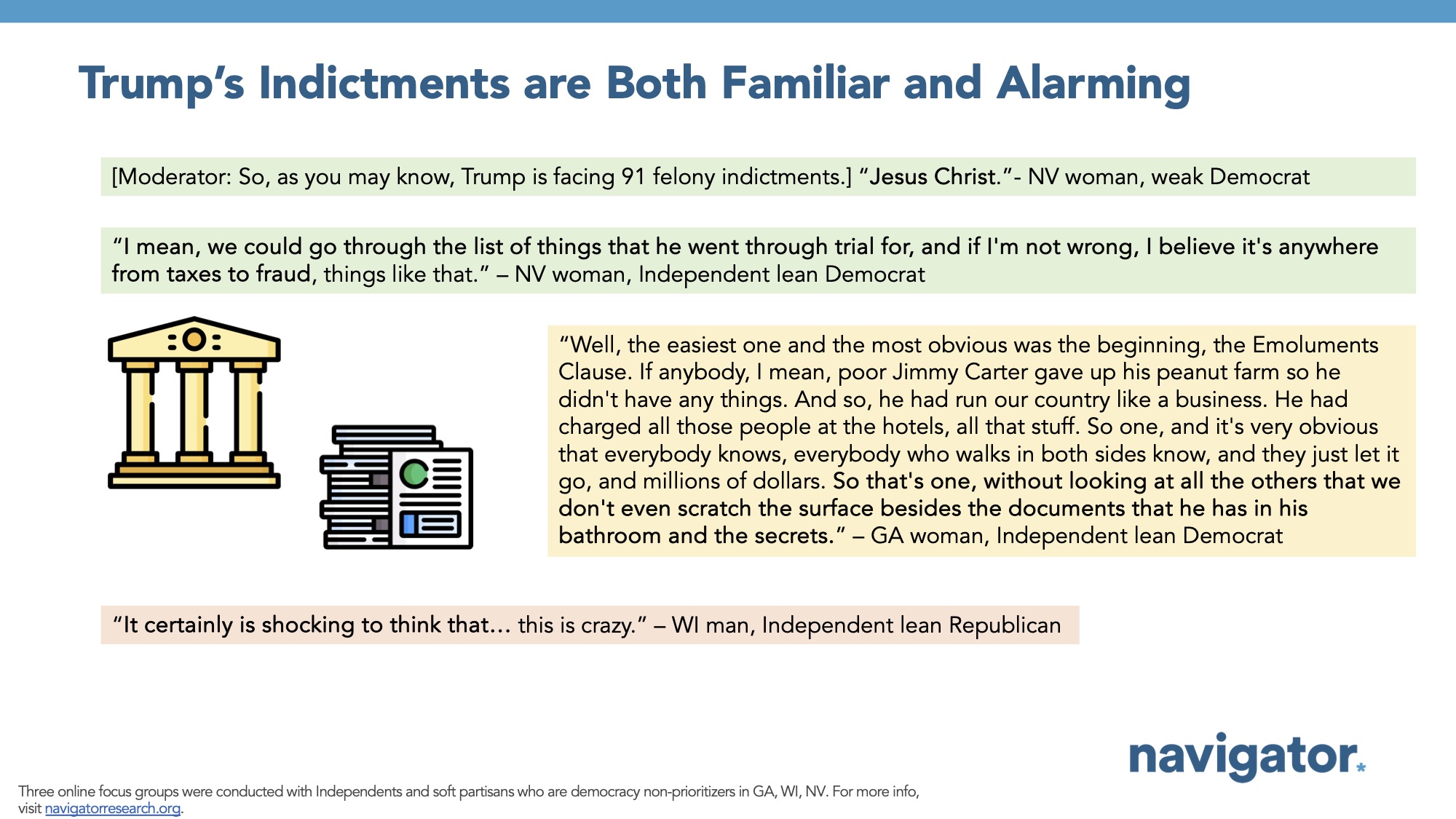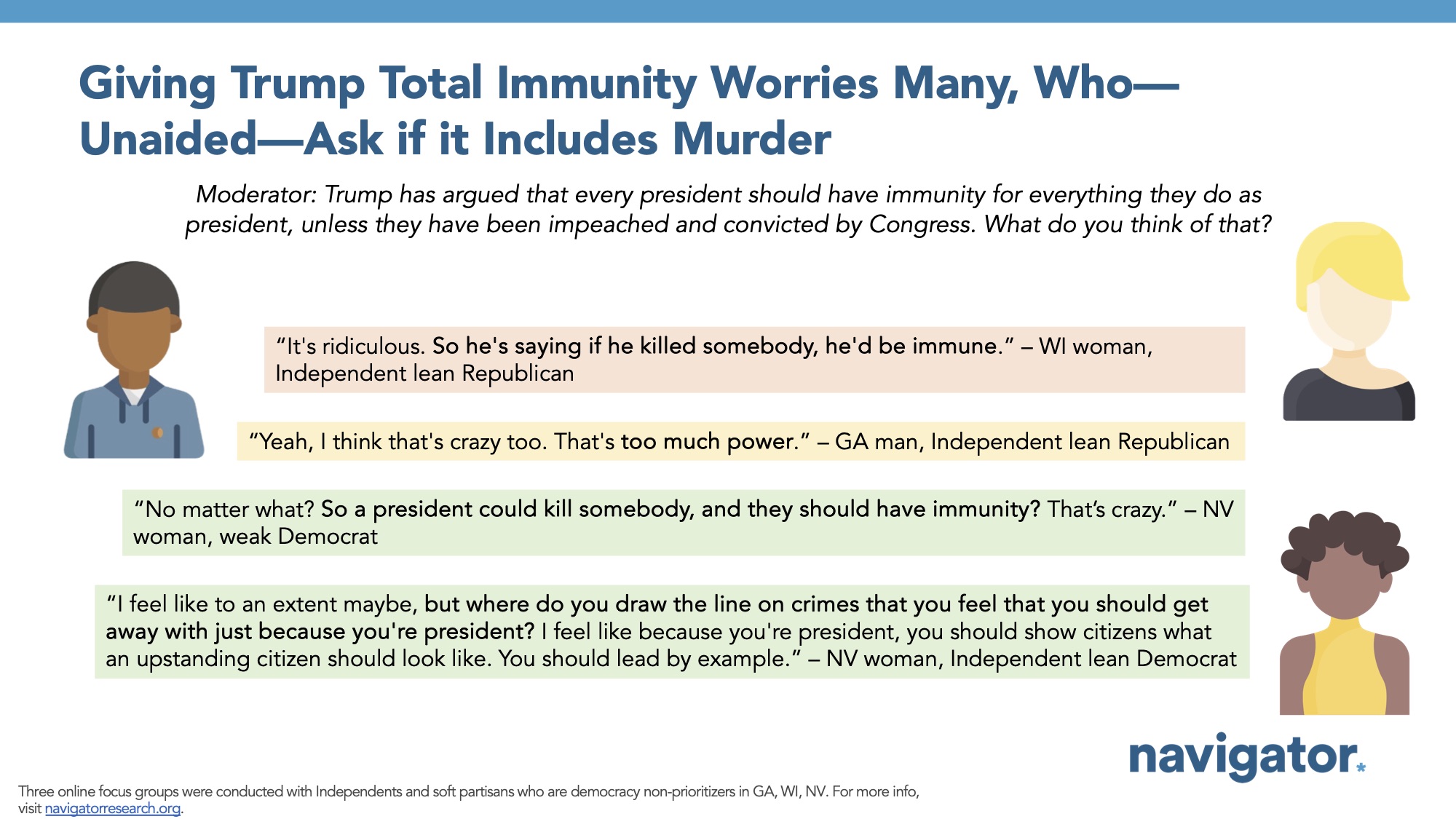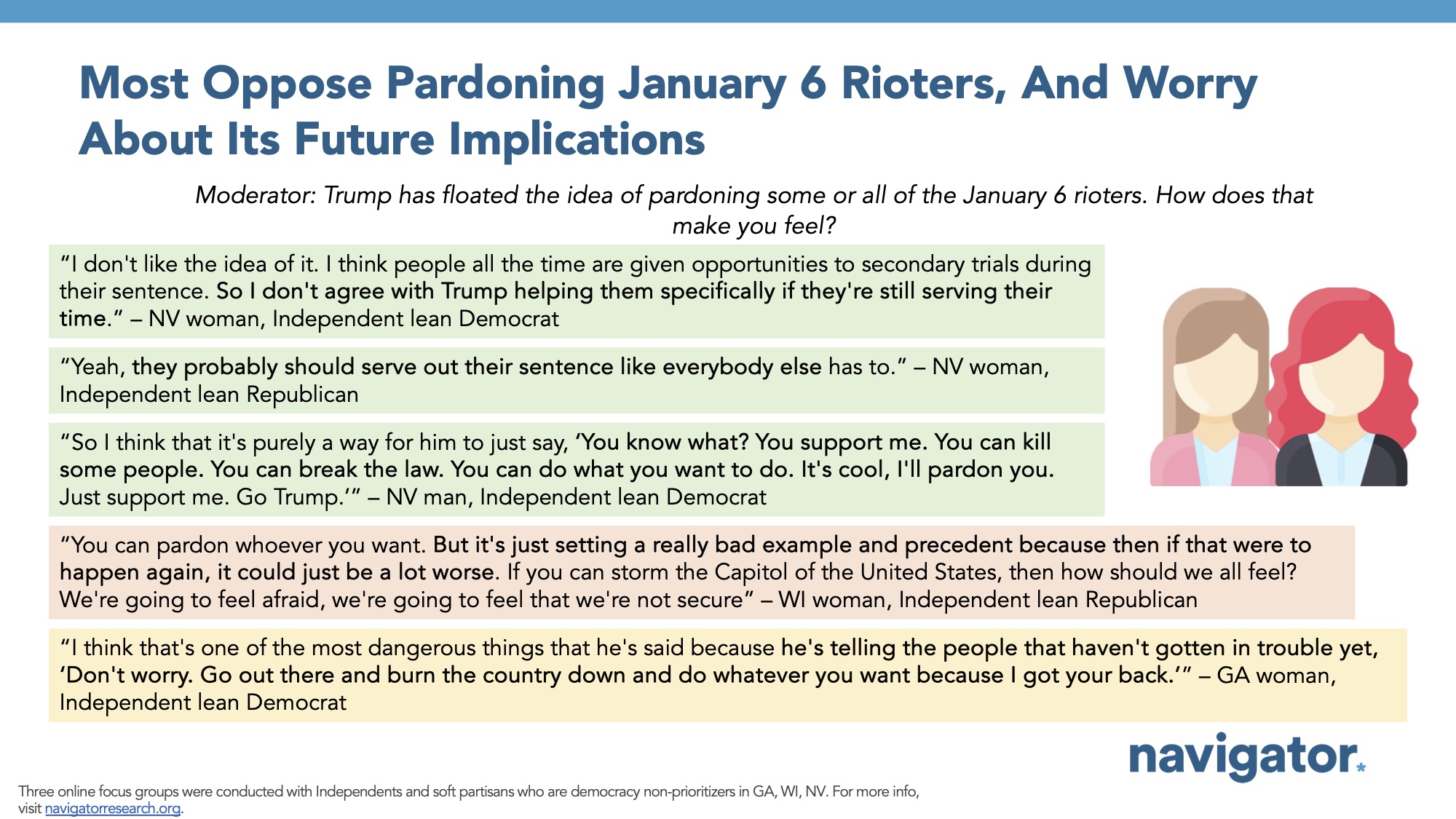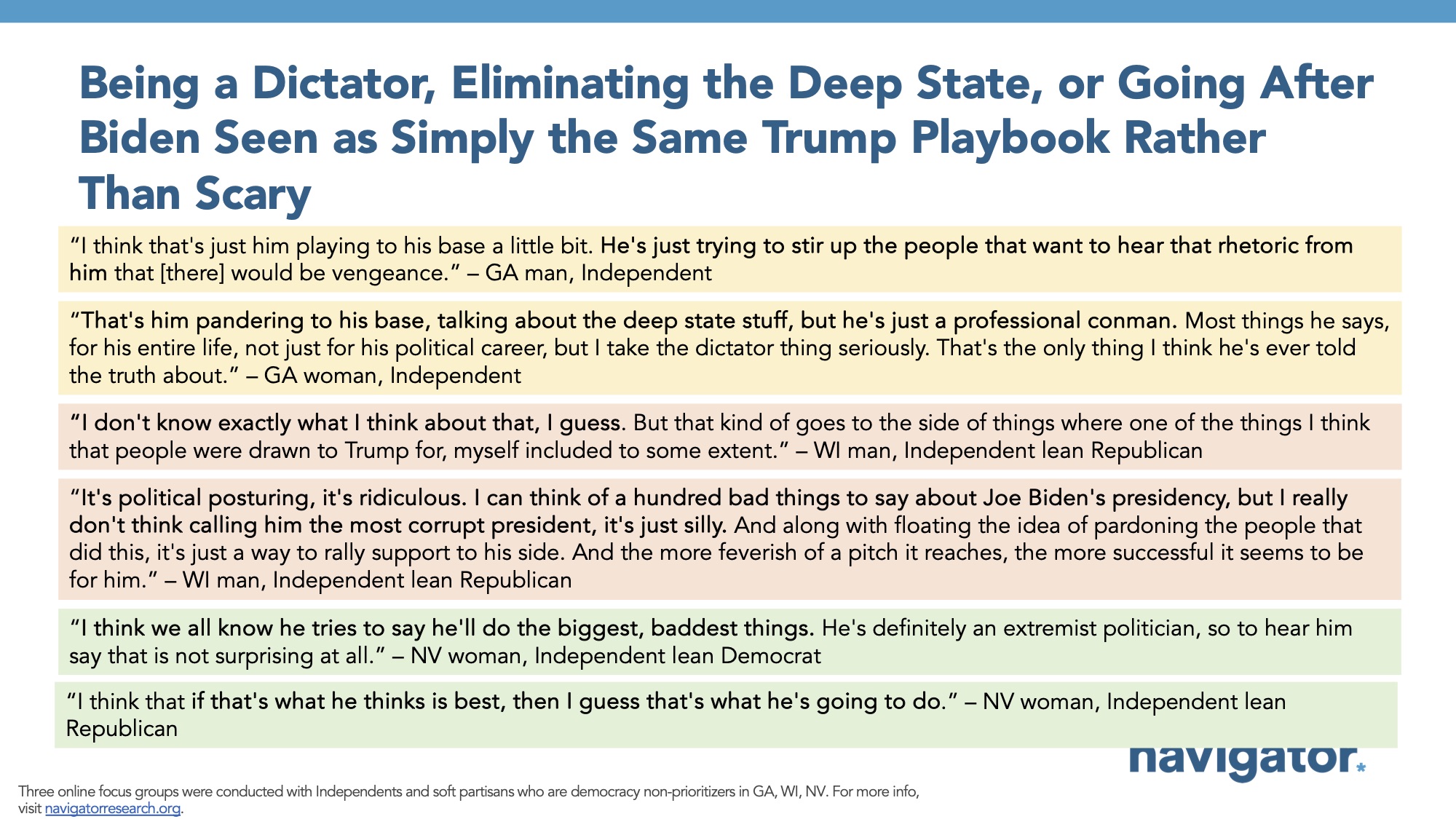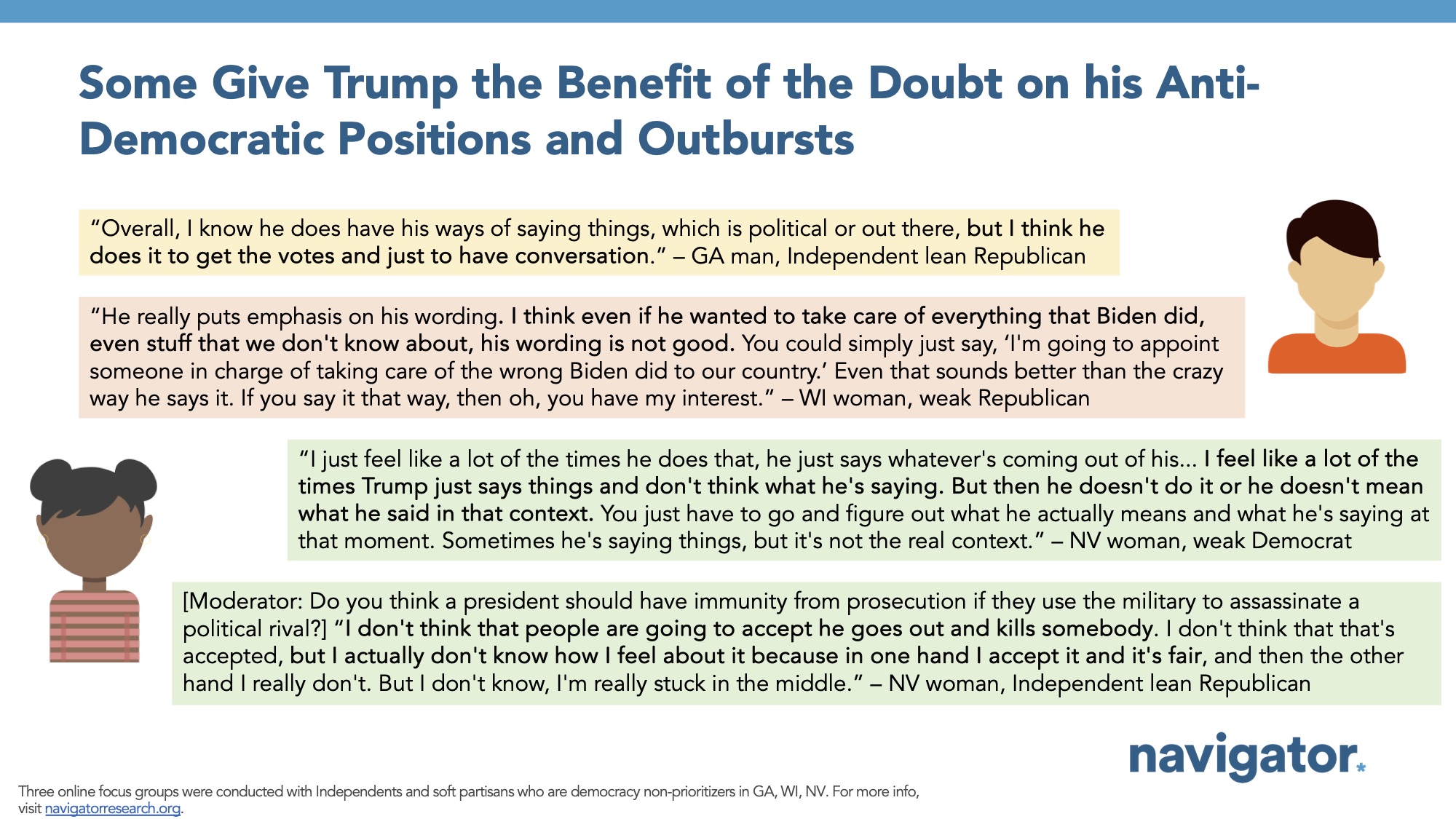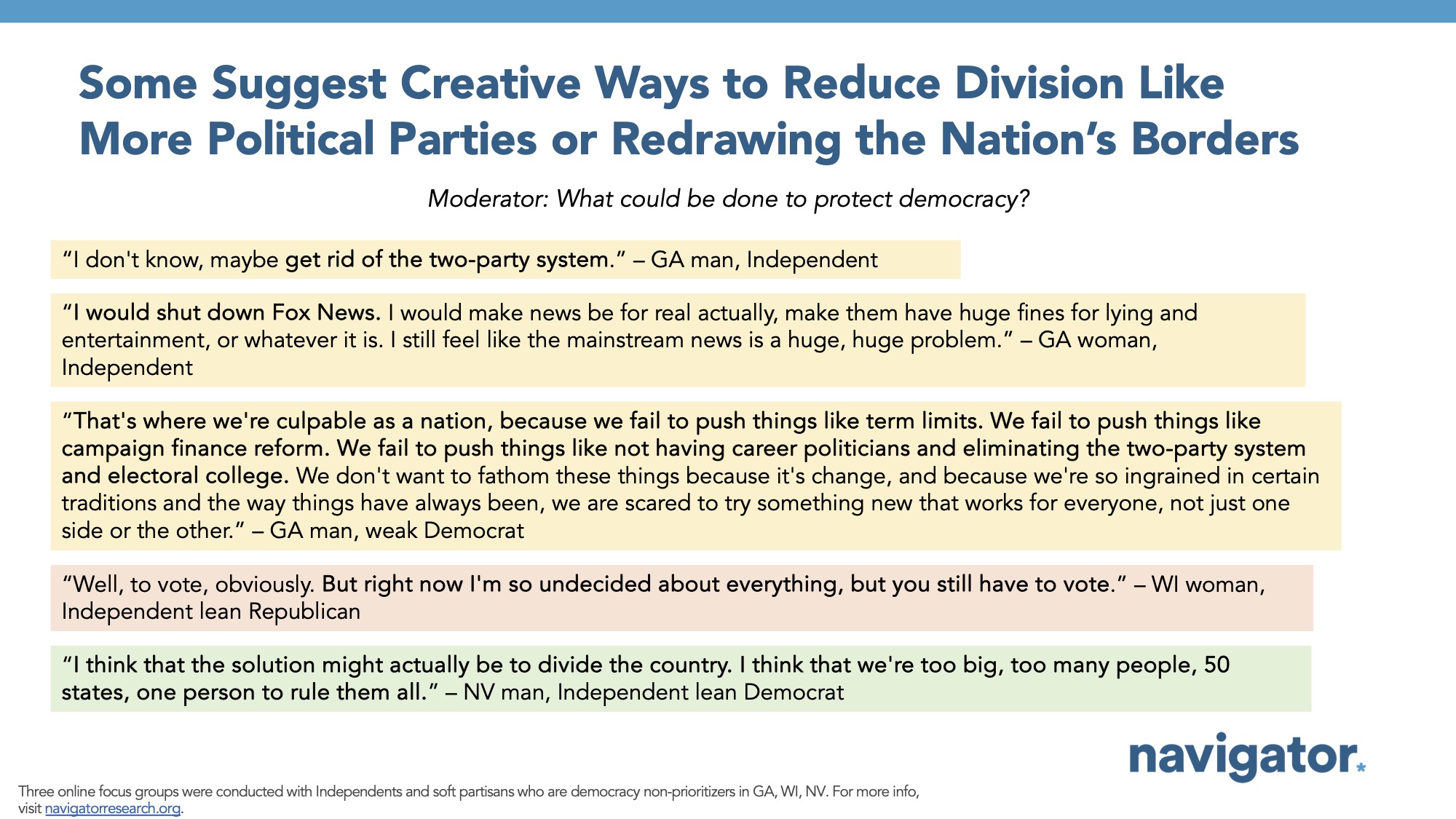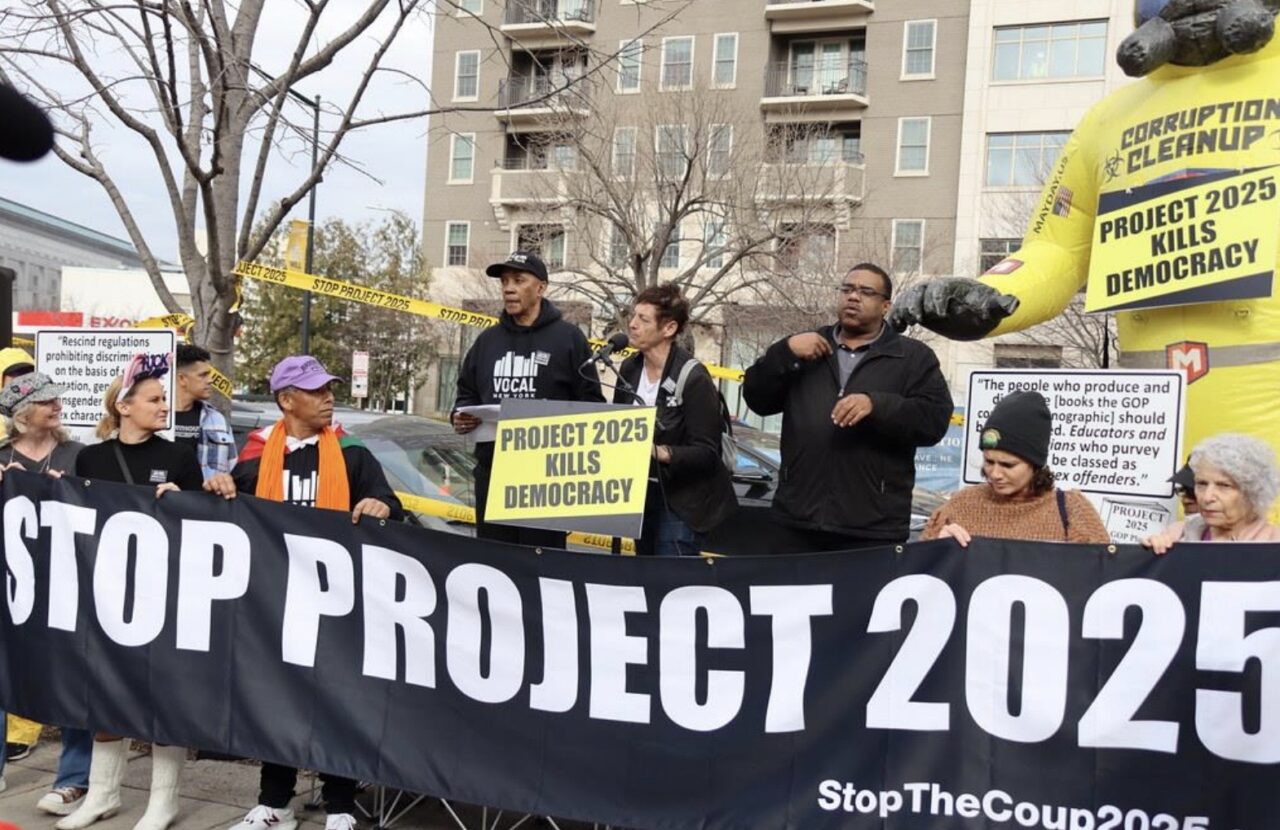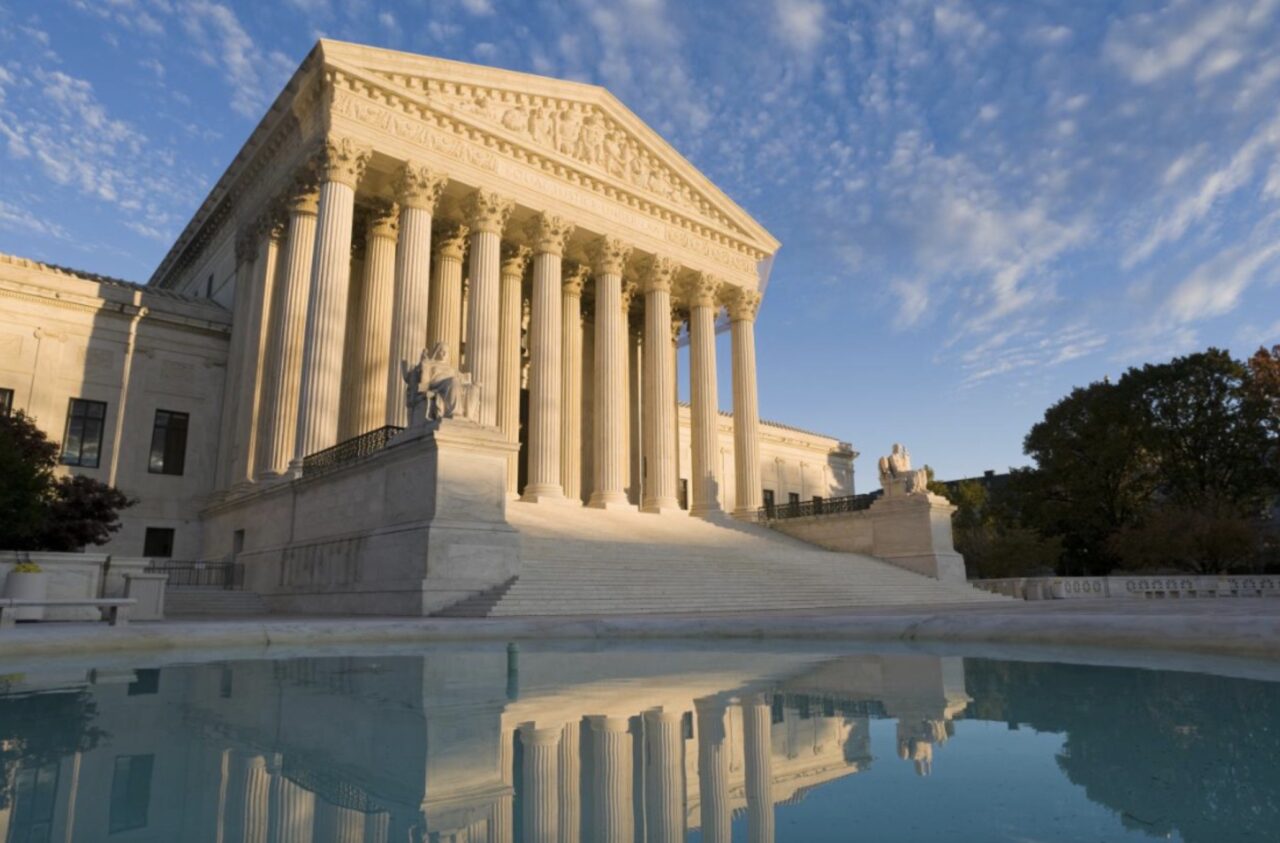Focus Groups: Independents and Soft Partisans on Democracy and Donald Trump
This Navigator Research report contains findings from focus groups among independent and soft partisans in Georgia and Nevada, and Republicans in Wisconsin on the current state of democracy, including the greatest threats to American democracy and how former President Trump’s handling of these issues impacts perceptions of him.
When asked what democracy means to them, focus group participants don’t have a shared definition.
Participants define democracy in myriad ways, sometimes invoking freedom, with one Georgia independent saying: “The freedom to choose, and the freedom to vote for whoever you want to, and power to the people to make decisions.” A Nevada independent-leaning Democrat said: “Everyone is supposed to have a say in how the country is run.” A Wisconsin independent-leaning Republican said: “Democracy is integrity… doing right by the citizens of the city, state, country.”
- While definitions vary, participants agree democracy is not working as intended. Many participants spoke about democracy being a thing of the past, as a Wisconsin independent-leaning Republican put it: “I believe that democracy is freedom, but now it’s gone to the extreme where it’s freedom for a certain group, not the majority, not the way it should be.” A Georgia independent similarly said: “I feel like it’s failing. Sorry, my light. I don’t know. I don’t see it how I used to. When I was young, I thought that we were a very… democracy was everyone really had a choice, and I don’t see it that way anymore.” A Nevada independent-leaning Democrat said: “I feel like when I hear the word democracy, I feel like that means everybody should have a say, but that doesn’t mean that it happens all the time.”
- When asking about the health of our democracy, as if participants were the doctor and democracy the patient, most describe it as under duress. One Nevada independent-leaning Republican said, “I don’t think it is dead yet, but I do think that it is dying.” An independent from Georgia said: “You got six months to live, buddy.”
Participants point to divisiveness in the country and the media as the primary threats they see to American democracy.
A Nevada Republican blamed democracy’s failure on lack of unity: “I think the unity here in America is the biggest thing of why democracy is falling and it’s not what it is today… because we all say we want certain things to be done in America and we want our economy to be a certain way, but us as Americans won’t even stand with each other to do those things.” A Georgia independent blamed social media and misinformation as the root cause: “The social media, the access to information, all the things that we’re going through as a whole is redefining democracy and the way that we receive information… we have to learn how to discern what’s true and not. We have to learn how to not jump on every bandwagon that comes by… I think that we’re just going through serious growing pains because of the way the information is flooded out to us.”
- When asked about political violence, participants link the term to the insurrection at the Capitol on January 6, 2021 with few other examples coming to mind. As one Wisconsin Republican said: “..that whole January thing, I think that was pretty scary. And I would say that’s a form of political violence when they stormed the Capitol.” A Nevada independent-leaning Democrat said: “It’s people in power abusing or not using their power to do what the people want, or just intentional acts of violence.” A Georgia independent-leaning Republican thought of it as division: “[Besides January 6th] the only other thing I could think about is just the infighting between people over politics where you have families falling apart, friends, friendships ending, and things like that.”
- Participants view support for the January 6th insurrection and rioters negatively. When asked how they would feel if there was a member of Congress or a candidate for Congress who said that they supported the actions of the rioters on January 6th, a Wisconsin independent-leaning Republican stated: “To me that’s disgusting. That goes against the foundation of this country, the foundation of democracy. I don’t care what side you’re on, there’s just no place for something like that. I guess I shouldn’t say there’s no place since we were founded off of a rebellion, but that’s definitely not what I would call that.” While a Nevada independent-leaning Republican noted: “They’re not the best. I don’t think that it was okay. No matter what you’re doing or what the outcome of the situation was. I don’t think it was okay no matter what.”
Trump’s record on democracy is viewed poorly, and he is seen as the perpetrator of the events of January 6th.
Former President Trump’s involvement with January 6th feels evident to many, including one Wisconsin Republican who stated: “Trump [is to blame]. He told them to go there. He didn’t even bother to show up, and he didn’t stop it. At that point, he was still the president, yes? He could have done something and he didn’t. He was proud of them, he was glad they were there. And now they would say that that’s not true, but it was true. And those guys went to prison and nothing happened to him.” Participants view Trump’s link to January 6th as an example of his poor record on democracy. One Wisconsin weak Republican noted: “Well, on democracy, I feel like that part’s a little bit more negative because for instance, with, we’ll say January 6th, if he was even involved, we don’t know that. But if he was and instigated it and was part of that, then I think that that shows poor decisions in regards to democracy because it’s almost like a tantrum against what the people had chosen.” A Georgia independent-leaning Democrat stated: “Well, if there was an F and [he would get an F minus]. He doesn’t respect our constitution, the rule of law or democracy at all.”
Trump’s legal arguments around total immunity also alarmed participants, while other claims are seen as simply the “same old” Trump playbook.
When asked about Trump’s claim of immunity for everything Presidents do while in office, unless they are impeached and convicted by Congress, a Georgia independent-leaning Republican said: “Yeah, I think that’s crazy too. That’s too much power.” A Nevada weak Democrat remarked: “No matter what? So a president could kill somebody and they should have immunity? That’s crazy.” The idea of pardoning January 6th rioters also stirred alarm, as a Georgia independent-leaning Democrat said: “I think that’s one of the most dangerous things that he’s said because he’s telling the people that haven’t gotten in trouble yet, ‘Don’t worry. Go out there and burn the country down and do whatever you want because I got your back.’”
- However, many of Trump’s claims are merely seen as him “pandering to his base” as one Georgia independent put it, while a Wisconsin independent-leaning Republican said: “I don’t know exactly what I think about that, I guess. But that kind of goes to the side of things where one of the things I think that people were drawn to Trump for, myself included to some extent.” A Nevada independent-leaning Democrat similarly said: “I think we all know he tries to say he’ll do the biggest, baddest things. He’s definitely an extremist politician, so to hear him say that is not surprising at all.”
In searching for ways to protect democracy and fix divisions, participants resort to creative solutions.
Some participants see civil engagement and participation as a way to fix the issues facing democracy, with one Wisconsin independent-lean Republican saying: “Well, to vote, obviously. But right now I’m so undecided about everything, but you still have to vote.” Others blamed the current two-party system, like a Georgia independent, “I don’t know, maybe get rid of the two-party system.” Another Georgia independent spoke further of the current system not working, “that’s where we’re culpable as a nation, because we fail to push things like term limits. We fail to push things like campaign finance reform. We fail to push things like not having career politicians and eliminating the two-party system and electoral college. We don’t want to fathom these things because it’s change, and because we’re so ingrained in certain traditions and the way things have always been, we are scared to try something new that works for everyone, not just one side or the other.”
About The Study
GBAO conducted three online focus groups January 24, 2024 with Independents and soft partisans who are democracy non-prioritizers in three states: GA, WI, and NV. Some quotes have been lightly edited for brevity. Qualitative results are not statistically projectable.

